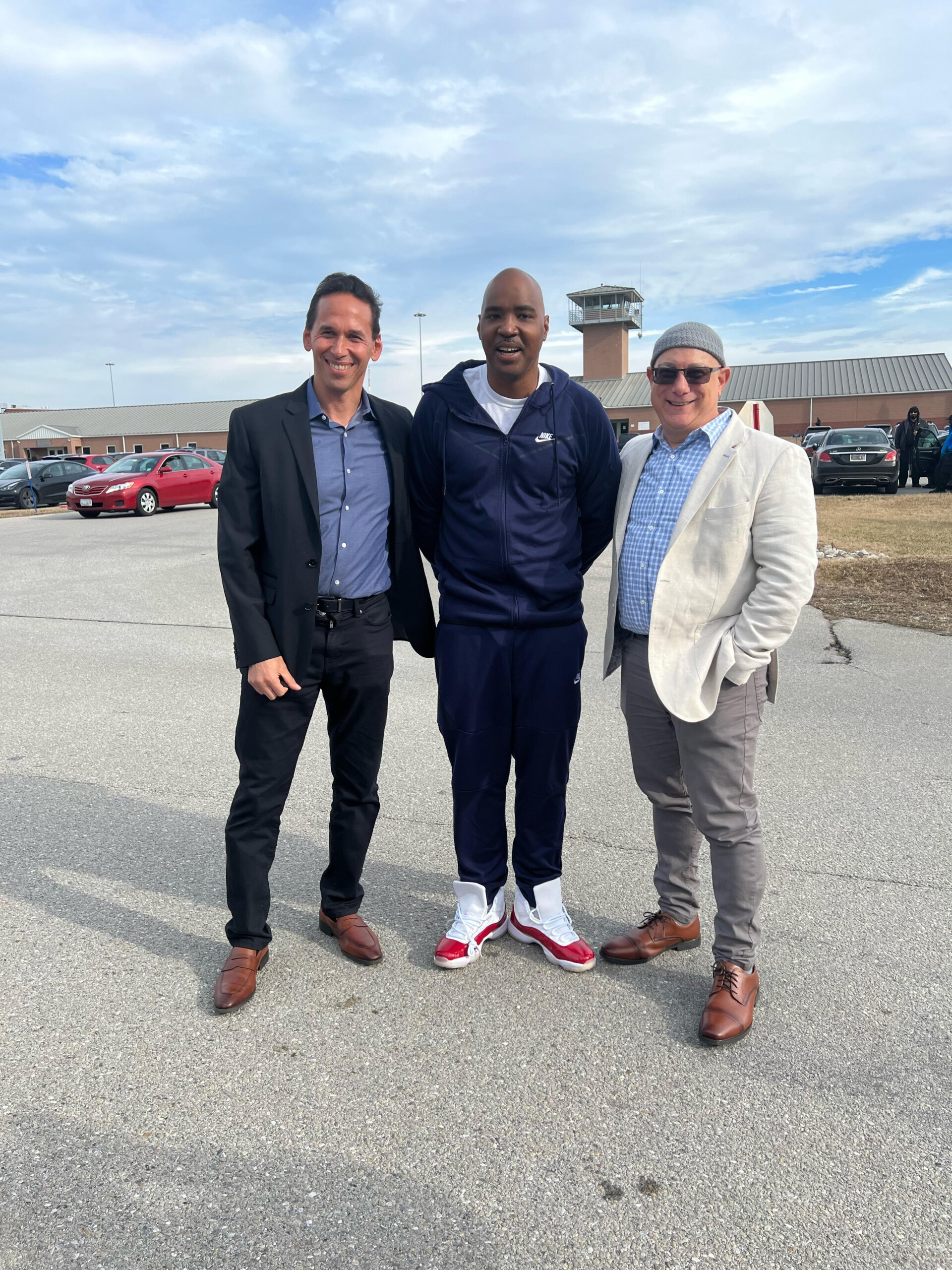Kenneth Bond-El
On February 9, 2023, MAIP client Kenneth Bond-El was released from Jessup Correctional Institution after spending almost three decades in prison for a murder he did not commit.
Kenneth was released under a 2021 Maryland law that allows people convicted of crimes committed when they were children to seek resentencing, so they don’t spend their entire lives in prison. Kenneth was represented at his resentencing hearing by Brian Saccenti of the Office of the Public Defender (OPD) and Marc Howard, a Georgetown University professor and founding director of Georgetown’s Prisons and Justice Initiative. MAIP’s co-counsel at Cooley (Dee Bansal, Erich Veitenheimer, Beth Shrieves, and Natalie Pike) researched and wrote Kenneth’s re-sentencing motion.

On November 27, 1995, Terrence McKoy was shot and killed during an attempted robbery while waiting at a bus stop in Baltimore City. Kenneth was 16 and had no relationship with the victim, but one of the four eyewitnesses identified him as the shooter. Although the other three witnesses did not identify him, he was arrested and charged with the crime.
Kenneth has always insisted that he was innocent, and the state’s case against him at trial was thin. The lone eyewitness wavered on the stand, saying he couldn’t be 100 percent sure that Kenneth was the shooter – just that he looked like the shooter. The only other evidence linking Kenneth to the crime was testimony by a ballistics examiner who used a now-discredited technique to suggest that a gun cartridge in Kenneth’s home matched shell casings from the crime scene. Although Kenneth told his lawyer he was at the movies with friends on the day of the crime, the now-disbarred attorney did not present it. Nonetheless, Kenneth was convicted and sentenced to life plus 60 years in prison in October 1997.
Marc Howard brought Kenneth’s case to MAIP’s attention after students in his Making an Exoneree program discovered the serious doubts harbored by the state’s lone eyewitness, who has grown even less certain about the identification over time. MAIP and co-counsel at Cooley then discovered evidence supporting Kenneth’s alibi. In 2021, the passage of the Juvenile Restoration Act (JRA) gave Kenneth an opportunity to seek release from prison while still working to fully clear his name.
In fact, the JRA was tailor-made for someone like Kenneth, who worked hard over his 27 years of wrongful incarceration to become an accomplished student, dedicated employee, and well-respected mentor. He was admitted to the Second Chance Pell Grant Program at the University of Baltimore, where his outstanding academic performance landed him on the Dean’s List and into the Honors Program. He also has a spotless disciplinary record, earned multiple certifications as an employee with Maryland Correctional Enterprises, and is a trusted mediator and mentor to incarcerated youth.
In the face of such compelling evidence, the Baltimore Circuit Court granted Kenneth’s JRA motion and reduced his sentence to life with all but 40 years suspended. This victory will allow him to pursue his education and career goals, spend time with his supportive family and friends, and work with MAIP, Cooley, and Georgetown to fully clear his name.
Kenneth joins two other MAIP clients who have been released under a similar law in DC over the past year. Although we always aim for full exoneration, that litigation often can take a decade or more because the state so rarely is open to innocence claims and because the post-trial system focuses on procedure over justice. We’re grateful to our friends in the juvenile justice community who have worked so hard to advocate for these laws, and we’re hopeful that they’ll allow even more of our innocent clients to fight their convictions outside prison walls.
Read more: